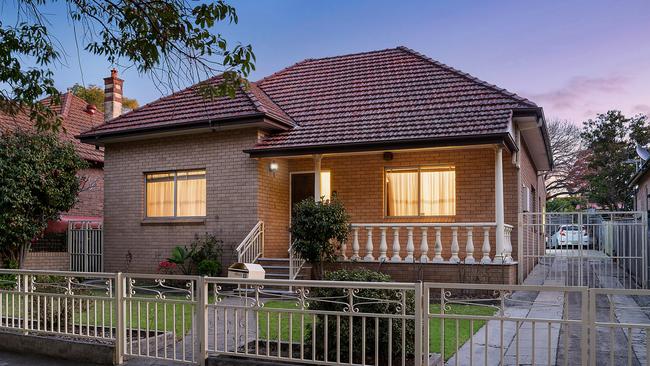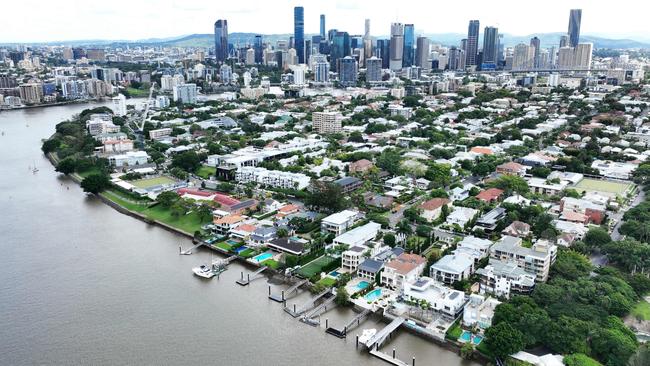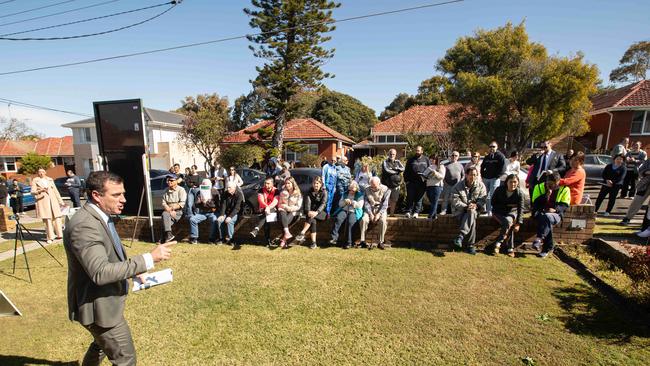Average new Aussie first-home buyer won’t get into property market until 2049: Finder
First-home buyers who start saving for a deposit now face an agonising wait to simply get into the property market, new modelling of earnings and property prices shows.

A first-home buyer who started saving a deposit for the average Aussie house would only have enough money to get a loan by the year 2049, new modelling of earnings and prices reveals.
It would be an even longer wait for first-home buyers in NSW, who would take an average of 20 years to save enough deposit, pushing their house purchase to 2053.
Apartment purchasers, meanwhile, will take an average of 12 years to save a deposit across Australia, 14 years in NSW and about 10 years in cheaper states like South Australia – if purchasing with a 20 per cent deposit at typical prices.
MORE: Homebuyer’s error to cost him $1.7m
That’s according to new Finder analysis, which sought to calculate how long it would take the average earner to save a deposit if wages and property prices continued growing at a rate similar to previous years.
The findings showed younger Aussies looking to fulfil the dream of homeownership need at least $299,868 for a deposit on a house and $188,523 for a unit.
Modelling was based on a 3.5 per cent annual growth on home prices, a 3 per cent average savings interest rate and 3.5 per cent annual growth in the median household income.
MORE: Homeowners have secret weapon to beat rate rises
It also assumed households saved a quarter of their income after spending on rent, groceries, utilities, internet, phone and transport.
Richard Whitten, home loans expert at Finder, said many first-home buyers can’t afford to pay such a significant amount.

“Property prices have grown at a faster rate than incomes over the past few decades. Being able to save enough for the upfront deposit, especially when the cost of everything from food, energy, and insurance is rising, is a huge barrier to overcome,” he said. “Buying a home is becoming increasingly out of reach for many Aussies.”
MORE: Sad truth about Sam Kerr’s childhood home
Finder’s model shows the situation is the worst in NSW where households need a full two decades of savings for a house deposit amounting to $470,660.
Tasmania comes a close second, with households needing 17 years worth of savings for a house. This would mean saving $226,098.
Victorians will need 16 years to save the $326,625 required for a house deposit.
South Australians can achieve their dream one year quicker needing 15 years to save the $211,456. Aussies living in Queensland and the ACT are not far behind needing 14 years and 12 years to save the $232,960 and $312,386 needed respectively.

The Northern Territory and Western Australia come in as the best places to save for homeownership. Households up north can expect to find eight years of savings equivalent to $151,584 enough for a house. In the west, Aussies will need 10 years to save the $178,697 required for a deposit.
Aussies saving for a unit have it slightly easier, needing 14 years of savings in NSW ($258,914) and Tasmania ($165,720).
Mr Whitten urged first-home buyers to plan ahead. “Having a realistic budget and getting into a good savings habit early on – even if it’s just small amounts each month – will put you on the right track,” he said.
“See if you can find ways to stretch your dollar even further. Make sure you’re not paying for things you don’t need or aren’t using, and don’t pay too much for what you do need.”

The main contributor to how quickly Aussies can save for a deposit across the country is how expensive their ongoing rental costs are compared to their household income.
States where it is quickest to save for a deposit have rental costs that are less than 30 per cent of median household income, including the ACT (26 per cent), NT (27 per cent), Victoria (27 per cent), Western Australia (29 per cent).
Prospective homeowners can expect to spend slightly fewer years saving for units in Victoria (11 years), Queensland (10 years) and South Australia (10 years) where they will need $182,052, $144,849, and $122,114 respectively.
Units are the easiest to save for in the Northern Territory, requiring six years of savings ($93,667). Close behind are Aussies living in Western Australia, and the ACT where they will need 7 years with $105,406 and $150,232 respectively.
Originally published as Average new Aussie first-home buyer won’t get into property market until 2049: Finder

